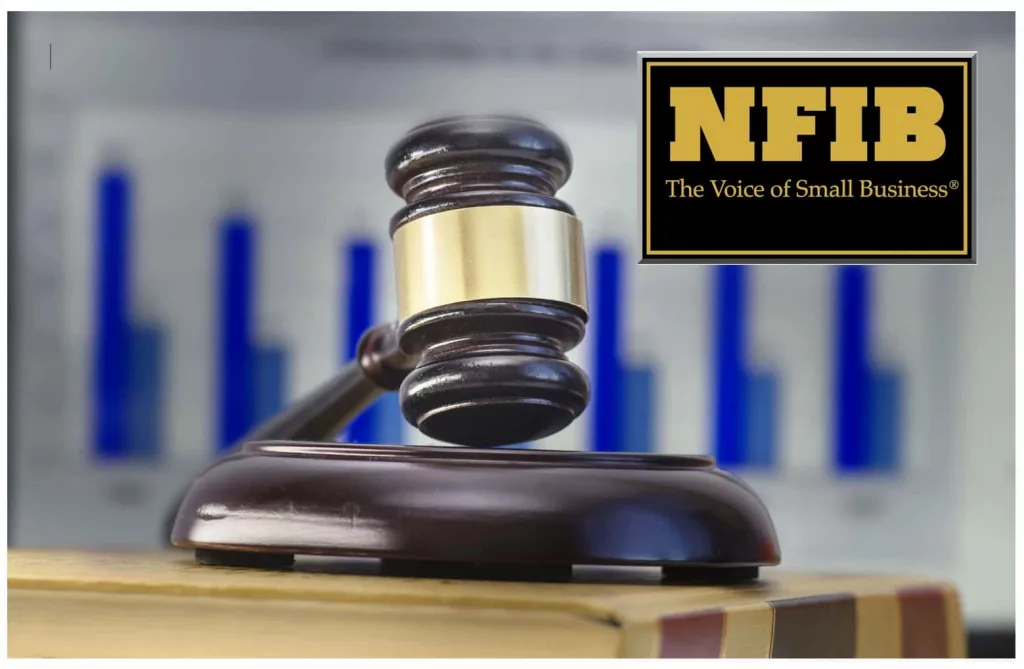One of Michigan’s leading small business organizations, the National Federation of Independent Business (NFIB), is asking for more clarity on Governor Whitmer’s “Stay at Home” Executive Order announced Monday.
Charlie Owens, State Director for NFIB in Michigan, says, “Small business owners appreciate and understand the seriousness of the current situation with the COVID-19 outbreak,” adding, “However, we need more specificity on the types of businesses that can remain open during the period of the ‘Stay at Home’ order.”
Owens referenced the recent Ohio order that included a listing of specific businesses that were considered “essential,” and contends, “The stay at home order issued by the Ohio Department of Health included a more detailed description of small businesses that included contractors, laundering and dry-cleaning, hardware supply stores, and more and that would be helpful here.”
Owens commended the Governor for including flexibility and supply chain integrity measures in her order, but indicated that much of that language will be confusing to most small business owners who do not have the benefit of legal counsel or specific expertise to react quickly to the emerging health threat.
The NFIB Research Center’s latest survey on the current impact of the COVID-19 outbreak on small business offers a stark contrast from the survey released 10 days ago. The magnitude of disruption now on the small business sector is profound. The full survey can be seen by clicking the link below:
Coronavirus-Impact-on-Small-Business-Survey-2-1
Currently, 76-percent of small businesses are negatively impacted by the outbreak of the coronavirus, a dramatic escalation from just under one-quarter of small businesses reporting the same earlier this month. About 5-percent are positively impacted. These firms are likely experiencing stronger sales due to a sharp rise in demand for certain products, goods, and services. This will presumably ease in the coming weeks as consumers feel more secure about their personal supply levels.
One-in-five (20-percent) of small businesses are not currently affected by the outbreak, but 77-percent of them anticipate that changing if the outbreak spreads to or spreads more broadly in their immediate area over the next 3 months. This marks a sharp departure from the earlier survey where 43-percent of small businesses anticipated being impacted if the virus spread. Just 4-percent do not believe they will be impacted if the outbreak escalates and 18-percent are not sure.
Of those businesses negatively impacted, 23-percent are experiencing supply chain disruptions, 54-percent slower sales, and 9-percent sick employees. The 9-percent of owners citing sick employees likely responded out of heightened concern and precautions with sick employees showing some signs of cold or flu-like symptoms, but not necessarily because they have employees who have tested positive for the virus.
Almost all small business owners are taking some sort of action adjusting to their changing economic condition or to protect themselves from potential disruption. Just 6-percent of owners have not taken any action in response to the outbreak, a market departure from more than half (52-percent) not taking action two weeks ago.
The level of concern among small business owners about the coronavirus impacting their business has elevated significantly over the past two weeks. About 68-percent of small business owners are “very” concerned about its potential impact on their business compared to 16-percent in the earlier survey. Another 23-percent are somewhat concerned and 9-percdnt are slightly concerned. Just 1-percent are not at all concerned.
While many small businesses (47-percent) have not talked with their bank about financing needs, 30-percent are planning to do so soon. Another 13-percent have talked with their personal bank already, 9-percent with the SBA about their loan programs, and 1-percent with an online lender.
The vast majority of small businesses are now impacted by the COVID-19 outbreak and owners are taking the threat to their business seriously. Many owners have already sought out financial help and more are planning to do so in the near future. The outbreak will leave few, if any, owners unscathed. Owens says, “We know the economic impact will be immense, and now, the question is how long will it last and how quickly can the small business sector recover once on the other side.” Small business owners are anxious to seek clarity to both questions.
As for the Governor’s “Stay at Home” order, Owens said that NFIB will be working to seek more clarification for small business on what is considered “essential” and employees that are deemed “critical infrastructure workers.”
For more than 75 years, NFIB has been advocating on behalf of America’s small and independent business owners, both in Washington, D.C., and in all 50 state capitals. NFIB is nonprofit, nonpartisan, and member-driven. Since their founding in 1943, NFIB has been exclusively dedicated to small and independent businesses, and remains so today. For more information, you can visit online at nfib.com.






